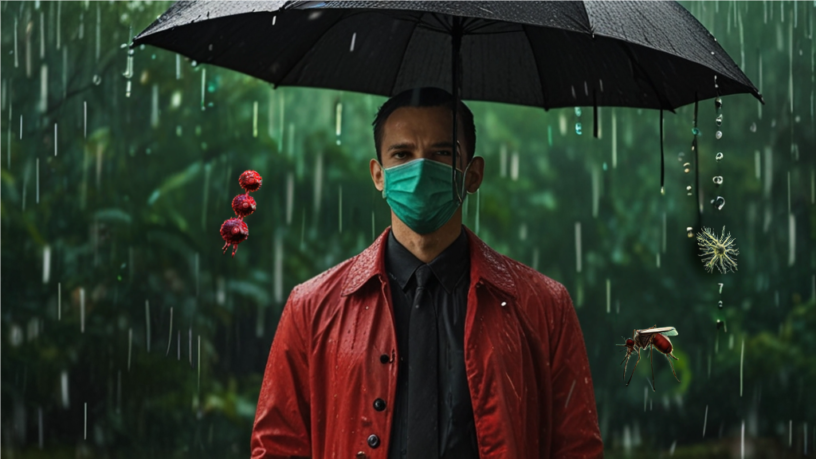With the heat relieving rain showers in monsoon there are some diseases also emerges. These diseases can be water-borne, air –borne and vector-borne (by mosquito & fly). Some water or vector-borne diseases and their prevention methods are described below, that are frequently seen during monsoon in India:
1. Cholera
Cholera is an acute disease that is caused by contaminated water and food and most commonly occurs where sanitation is not properly followed. It is caused by the bacteria ‘V. cholerae‘. Mild Diarrhea and dehydration-like symptoms can be seen 12 hours to 5 days after the infection. Proper treatment is required for better health.
During the 19th century, it spread all across the world from its reservoir, the “Delta of Ganges,” in India and killed millions of people in multiple pandemics.
According to the WHO, prevention and treatment of cholera need a multifunction approach that includes surveillance, sanitation of water and food, hygiene, and oral treatment. Furthermore, WHO planned a program globally for cholera control, “Ending cholera: a global roadmap to 2030.”
2. Dengue
Dengue is a viral disease that occurs by bite of an infected mosquito (Adese sp.). It is mostly found in tropical and subtropical regions of the world.
Symptoms & Treatment:
It is called break-bone fever due to symptoms like a severe headache, pain behind the eyes, rash, high fever, nausea, and body ache-like pain in joints. Symptoms develop after 4–10 days of infection and last for 2–7 days.
Prevention of the vector (the mosquito) is the best solution for dengue, and there is still no specific treatment or vaccine for it. Prevent mosquito breeding in standing water near households, and use insecticides or repellents.
3. Malaria
Malaria is also spread by infected Anopheles species mosquito, mostly found in tropical climates. Unlike dengue, it is a curable disease.
Symptoms & Treatment:
Mild symptoms are fever with chills and headache; severe symptoms are fatigue, confusion, dark urine, and breathing difficulties.
Like dengue, prevention of mosquito bites is preferable, using a mosquito net or repellent. Specific vaccines and medicines for malaria are chloroquine and primaquine, which should be taken after a physician’s prescription.
4. Typhoid
Typhoid is caused by using water or food contaminated with the bacteria Salmonella typhi. Once the body gets infected, bacteria multiplies itself and spreads into the bloodstream. Urbanization and resistance to several antibiotics make it easier to get infected in places where sanitation and safe drinking water are not available.
Symptoms & Treatment:
Symptoms include prolonged fever, fatigue, headache, nausea, and stomachaches with constipation or diarrhea. Severe cases of typhoid may lead to death-causing complications.
As a treatment, take the prescribed antibiotics as long as suggested and use proper sanitation measures to prevent further infection spread. Avoid any raw drinks, juices, milk, or vegetables. Eat properly cooked meals and use packed, sanitized drinking water.
5. Zika
Zika is also a viral disease, spread mostly by Adese mosquitoes that usually bite during the day. Except from mosquito bites, it is also transmitted from mother to fetus during pregnancy through sexual contact, transfusion of blood and blood products, and possibly organ transplantation of an infected person.
Symptoms & Treatment:
Most people infected with Zika virus do not have any particular symptoms however, some have as rash, fever, conjunctivitis, headaches and muscle-joint pain that last for 2–7 days. Infection during pregnancy can cause abnormalities as microcephaly in the fetus, even miscarriage.
There is no specific treatment or vaccine for the zika virus yet. Research is ongoing and therefore, prevention of mosquito bites is a must.




Leave a Reply